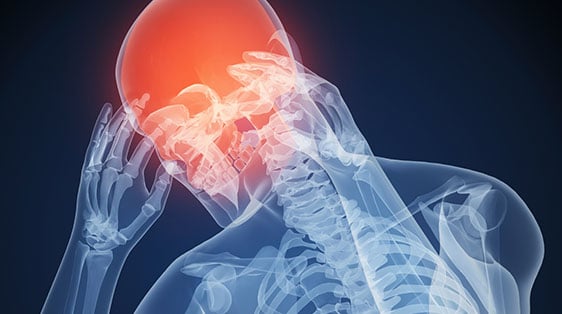A concussion is a brain injury that occurs when the brain is shaken inside the skull, causing changes in the brain’s chemistry and energy supply. A concussion might happen as a result of a direct blow to the head or an indirect force, such as whiplash. You might or might not lose consciousness.
If you think you might have a concussion:
Seek medical care immediately
Avoid any additional trauma to your head—don’t engage in any activity that carries a risk of head injury
Limit activities of all kinds, including school and work
Because no 2 concussions are the same, a physical therapist will perform an examination to assess your individual symptoms and limitations, and then design an individualized treatment program.
How a Physical Therapist can help:
Help Stop Dizziness and Improve Your Balance:
- If you have dizziness or difficulty with your balance following a concussion, vestibular physical therapy may help. A qualified vestibular physical therapist can provide specific exercises and training to reduce or stop dizziness and improve balance and stability.
Reduce Headaches
- Your examination will include checking you for neck problems. Neck injuries can cause headaches and contribute to some forms of dizziness. Your therapist also can assess your back for possible injuries to your spine.


